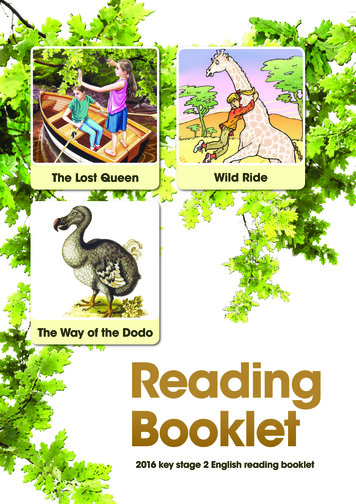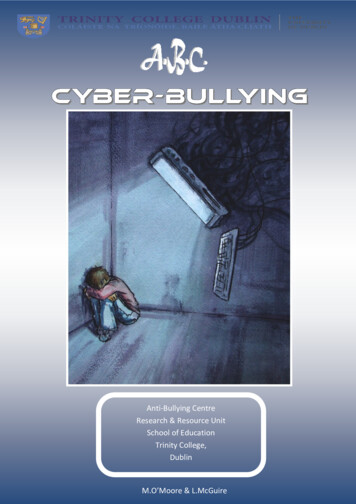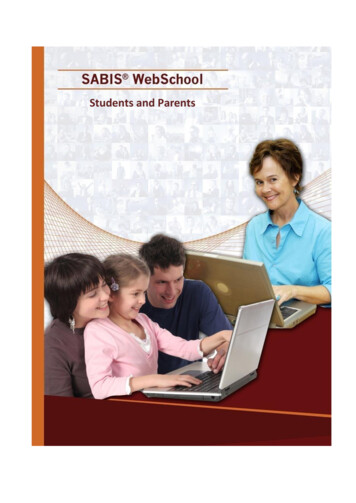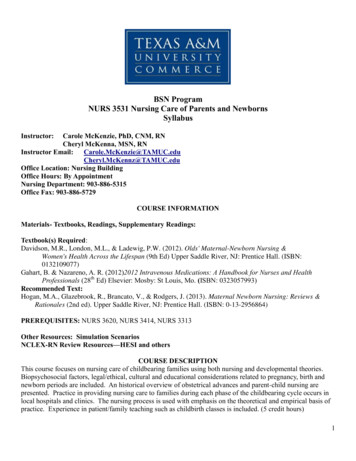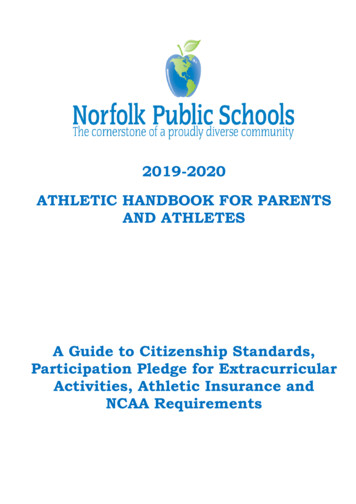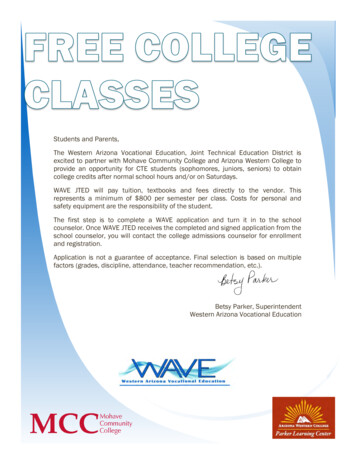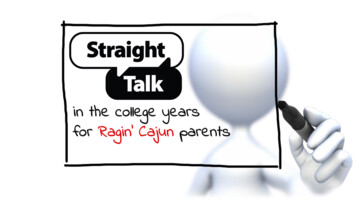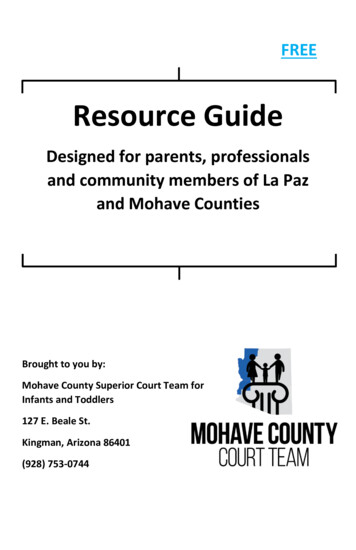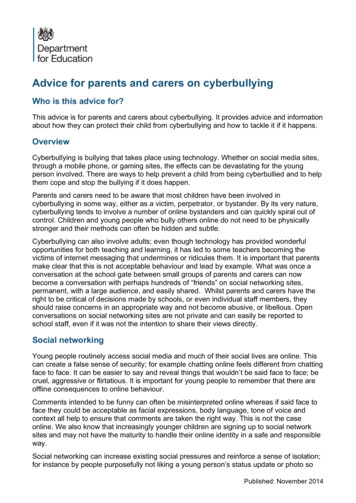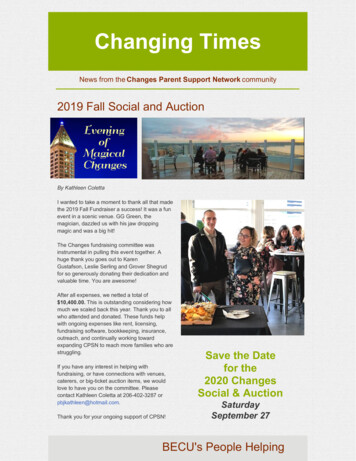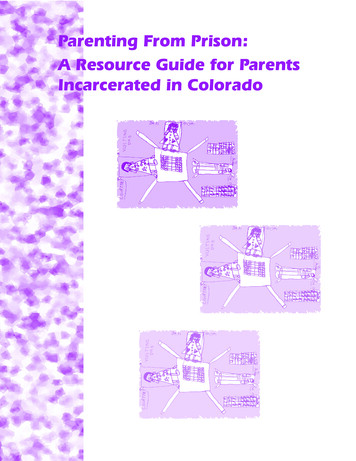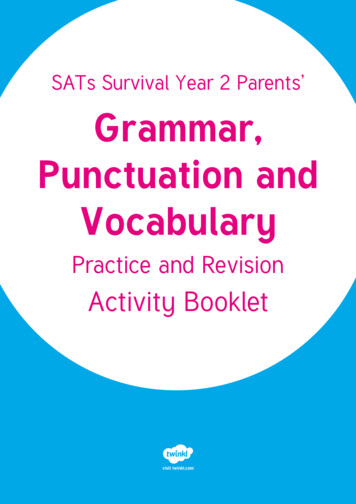
Transcription
SATs Survival Year 2 Parents’Grammar,Punctuation andVocabularyPractice and RevisionActivity Booklet
Contents1Information and Guidance for Parents2Initial Assessment Quiz3Initial Assessment Quiz Answers and Page References4Conjunctions5Sentence Types6Suffixes7Types of Words8Capital Letterspage 229Past and Present Tensepage 23page 3pages 4-8pages 9-13page 14pages 15-18page 19pages 20-2110 Using an Apostrophepage 2411 Commas in a Listpage 2512 Making Sentencespage 2613 Contracted Forms of Wordspages 27-2814 Answerspages 29-3915 Reward Ideaspage 40Page 2 of 40
1Information and Guidance for ParentsThis booklet is intended to help you to support your child as they learn, practice and consolidate the rules forgrammar, punctuation and vocabulary that they have learnt so far. Grammar and punctuation is a relativelynew area to be tested at the end of Key Stage 1. This booklet is based on the content domains tested inthe 2016 KS1 SAT assessments for grammar, punctuation and vocabulary. It is not statutory for schools totest Year 2 pupils on their grammar, punctuation and spelling skills this year. However, many schools are stillchoosing to do so to help to inform their teacher assessment of writing.How to Use This BookletIt is entirely up to you how you use this booklet but we would not suggest that you sit down and workthrough it in its entirety in one sitting with your child. There will almost certainly be rules and patterns thatyour child already knows very well and others where they need a little more practice. You could ask yourchild’s class teacher which areas they suggest you focus on. You could also ask your child to do the initialquiz on page 4, which will give you an idea of the areas they may need further support with.Supporting Your Child’s Learning and WellbeingMany children can become anxious about the prospect of taking assessment tests in school. Try to keepthese activities fun and in short bursts when you feel your child is receptive, i.e. not when they are tired aftera long day at school. Celebrate progress rather than scores – if your child scores full marks in a quiz, that’sgreat, but remember to praise their perseverance and determination as these are essential skills for success.At the end of this pack, there are also some ideas of how to reward your child for effort, concentration andprogress.You can find extra support for spelling in the Y2 Parents’ Spelling Practice and Revision Activity Booklet.Page 3 of 40
2Grammar, Punctuation andVocabulary Initial Quiz1. Tick the correct word to complete this sentence.Tomorrow, we could go for a walkwe could play games indoors.whenorifbecause2. Tick the correct word to complete this sentence.we go to the park, you can play a game.AndSoButIf3. Which sentence is a command?Pack away your paints now.You should be proud of your work.Will you show me your painting?That’s your best work yet!Page 4 of 40
Grammar, Punctuation and Vocabulary Initial Quiz4. Add a suffix to the word ‘fall’ to complete this sentence.The autumn leaves are fallto the ground.5. Add a suffix to the word ‘fast’ to complete this sentence.The hare knew that he could runfastthan the tortoise.6. What type of word is underlined in the sentence below.Gran thought the flowers were pretty.nounverbadjectiveadverb7. Why do the underlined words start with a capital letter?On Saturday morning, Sarah and her family went on holiday to Scotland.8. Circle the two nouns in the sentence below.You have left your pencil on the bench over there.Page 5 of 40
Grammar, Punctuation and Vocabulary Initial Quiz9. Joe and Sam are finding out about lions.Write a question they could ask their teacher in the speech bubble.Remember to use correct punctuation.10. What type of sentence is below?One day, Ali decided to make a toy robot.a questiona commanda statementan exclamation11. Circle the adverb in the sentence below.Jamie knocked softly on his brother’s bedroom door.12. Circle the correct verbs so that the sentence is in the past tense.The sun iswasshining and MiaPage 6 of 40played plays in the garden.
Grammar, Punctuation and Vocabulary Initial Quiz13. Circle the two verbs in the sentence below.I ran up the stairs and opened the door.14. Which sentence uses an apostrophe correctly?Lucy’s bag is green and has lots of pockets.Lucys’ bag is green and has lots of pockets.Lucys bag is green and has lot’s of pockets.Lucys bag is green and has lots of pocket’s.15. Add one comma to the sentence below in the correct place.The museum shop sells mugs posters and badges.16. Circle the full stops that are in the wrong places. One has been donefor you.My classroom is quite. big. There are some colourful paintings. on thewalls. My best friend. Ahmed painted one of them.17. Write the words did not as one word using an apostrophe.Ithink my sandcastle would win a prize.Page 7 of 40
Grammar, Punctuation and Vocabulary Initial Quiz18. Which punctuation mark completes the sentence below?What a wonderful present you gave mefull stopexclamation markquestion markcomma19. Tick to show whether each sentence is written in the past tense or thepresent tense.PasttenseSentenceAziz gave out the paint pots.Aziz spills water on the table.Aziz needed some glue.Page 8 of 40Presenttense
3Spelling, Grammar and Punctuation InitialQuiz – Answers1. Tick the correct word to complete this sentence.Tomorrow, we could go for a walkwe could play games indoors.whenorifbecauseIf you need support with this, go to page 14.2. Tick the correct word to complete this sentence.we go to the park, you can play a game.AndSoButIfIf you need support with this, go to page 14.3. Which sentence is a command?Pack away your paints now.You should be proud of your work.Will you show me your painting?That’s your best work yet!If you need support with this, go to page 15-18.Page 9 of 40
Spelling, Grammar and Punctuation Initial Quiz – Answers Page References4. Add a suffix to the word ‘fall’ to complete this sentence.The autumn leaves are falling to the ground.If you need support with this, go to page 19.5. Add a suffix to the word ‘fast’ to complete this sentence.The hare knew that he could runfaster than the tortoise.If you need support with this, go to page 19.6. What type of word is underlined in the sentence below.Gran thought the flowers were pretty.nounverbadjectiveadverbIf you need support with this, go to pages 20-21.7. Why do the underlined words start with a capital letter?On Saturday morning, Sarah and her family went on holiday to Scotland.Pupils need to indicate that these are all ‘proper’ nouns’ and so need acapital letter. Proper nouns include any kind of name – people, places,brand names, etc, as well as they days of the week and months of the year.If you need support with this, go to page 22.8. Circle the two nouns in the sentence below.You have left your pencil on the bench over there.If you need support with this, go to pages 20-21.Page 10 of 40
Spelling, Grammar and Punctuation Initial Quiz – Answers Page References9. Joe and Sam are finding out about lions.Write a question they could ask their teacher in the speech bubble.Remember to use correct punctuation.Any question is acceptable here as long as itis related to lions – for example, ‘Where do theylive?’ or ‘What do they eat?’ It is important thatchildren remember to start the question with acapital letter and finish it with a question mark.If you need support with this, go to pages 15-18.10. What type of sentence is below?One day, Ali decided to make a toy robot.a questiona commanda statementan exclamationIf you need support with this, go to pages 20-21.11. Circle the adverb in the sentence below.Jamie knocked softly on his brother’s bedroom door.If you need support with this, go to pages 15-18.12. Circle the correct verbs so that the sentence is in the past tense.The sun iswasshining and Miaplayed plays in the garden.If you need support with this, go to page 23.Page 11 of 40
Spelling, Grammar and Punctuation Initial Quiz – Answers Page References13. Circle the two verbs in the sentence below.I ran up the stairs and opened the door.If you need support with this, go to pages 15-18.14. Which sentence uses an apostrophe correctly?Lucy’s bag is green and has lots of pockets.Lucys’ bag is green and has lots of pockets.Lucys bag is green and has lot’s of pockets.Lucys bag is green and has lots of pocket’s.If you need support with this, go to page 24.15. Add one comma to the sentence below in the correct place.The museum shop sells mugs, posters and badges.If you need support with this, go to page 25.16. Circle the full stops that are in the wrong places. One has been donefor you.My classroom is quite. big. There are some colourful paintings. on thewalls. My best friend. Ahmed painted one of them.If you need support with this, go to page 25.17. Write the words did not as one word using an apostrophe.I didn’t think my sandcastle would win a prize.If you need support with this, go to pages 27-28.Page 12 of 40
Spelling, Grammar and Punctuation Initial Quiz – Answers Page References18. Which punctuation mark completes the sentence below?What a wonderful present you gave mefull stopexclamation markquestion markcommaIf you need support with this, go to pages 15-18.19. Tick to show whether each sentence is written in the past tense or thepresent tense.PasttenseSentencePresenttenseAziz gave out the paint pots.Aziz spills water on the table.Aziz needed some glue.If you need support with this, go to pages 23.Page 13 of 40
4ConjunctionsWhat you need to know: Conjunctions are joining words that join differentparts of sentences. A co-ordinating conjunction joins two sentences of equalweight or importance. Children often learn the term ‘FANBOYS’ to remembertheir co-ordinating conjunctions:forandnorbutoryetsoI had an apple and James had a banana.You can go to the park or you can go swimming.A subordinating conjunction introduces a subordinate clause – a part ofthe sentence that does not make sense on its own. Examples of subordinatingconjunctions are:whenbecauseifthatWe couldn’t go for a walk because it was raining.I cooked the pasta when I got hungry.Finish these sentences that all contain conjunctions:I like chocolate ice cream butMum gave me a cuddle becauseMo brushed his teeth whenPick the best conjunction to complete these sentences:I am going shoppingDad felt illI am getting my hair cut.he went back to bed.Make sure you come insideyou get cold.Page 14 of 40
5Sentence TypesWhat you need to know: In Year 2, children need to know about the fourmain sentence types: statements, questions, commands and exclamations,and also how to punctuate them.A statement is a sentence that tells you something. It begins with a capitalletter and ends with a full stop.Lions are carnivores.A question is a sentence that asks something. It begins with a capital letterand ends with a question mark.Where do lions live?A command is a sentence that tells you to do something. It begins with acapital letter and ends with a full stop.Read that book about lions.An exclamation is a sentence that begins with ‘what’ or ‘how’, contains averb, begins with a capital letter and ends with an exclamation mark.How beautiful that lion is!What a fierce lion he is!It is worth noting that sometimes exclamation marks can be used to expressanger, surprise or annoyance, but this does not necessarily make themexclamation sentences:I’m so excited to see the lions at the zoo!Punctuate these sentences correctly and say what type of sentence they are:Can we go swimming tomorrow, pleaseI have lots of homework to do this weekendHow sunny it is todayDon’t drop litter on the floorPage 15 of 40
Sentence TypesWhich of these sentences is a question? (Tick one)Joe likes to ride his bike.Where has Joe put his bike?Don’t forget your cycle helmet.What a shiny new bike Joe has!Which of these sentences is a command? (Tick one)Brush your teeth.How minty this toothpaste is!Why do we brush our teeth?Your toothbrush is in the bathroom.Which is these sentences is an exclamation? (Tick one)Tidy your bedroom now!I am cross because your toys are all over the floor!How messy your bedroom is!How long will it take to tidy this room?Which is these sentences is a statement? (Tick one)What would you like for dinner?My favourite dinner is pasta.What a delicious dinner I have had!Eat all your dinner up.Challenge: Can you label all the different sentence types on this page?Page 16 of 40
Sentence TypesWhat type of sentence is this?Grandad made us a cup of tea.statementexclamationquestioncommandWhat type of sentence is this?What time is it?statementexclamationquestioncommandWhat type of sentence is this?What a sunny day it is!statementexclamationquestioncommandPage 17 of 40
Sentence TypesDad is helping Lily to get ready for school. Write a command that he mightsay.Holly is finding out about dinosaurs. Write a question that she might ask.Fatima has just seen a squirrel in her garden. Write an exclamation shemay say to the squirrel.Page 18 of 40
6SuffixesWhat you need to know: Suffixes are letter strings that are added onto the end of a word (called the ‘root’ word) to change its meaning orgrammatical function. Common suffixes learnt in Year 2 are:–s and –es , which change nouns from singular to plural (cat – cats, fox– foxes) and verbs from first person to third person (I sit - he sits, I watch –he watches)-ing and –ed which change verbs to progressive tense and past tense(I walk – I am/was walking – I walked)-er and –est which change adjectives in order to compare two or morenouns (I am tall – you are taller – he is the tallest)There are certain rules about how some root words change when suffixesare added. For more detail on this, look at the SATs Survival SpellingPractice and Revision Activity Booklet.Add suffixes to these root words so that the sentences are complete.“Are you listen?” asked the teacher.Yesterday, I talkto my grandma on the phone.Dad put three boxof cereal in the trolley.The elephant is the bigI took a smallland mammal.piece of cake than my brother.Page 19 of 40
7Types of WordsWhat you need to know: In Year 2, children learn about the four mainword types:nouns – people, places, things and feelings: bird, school, pencil, sadnessThis includes ‘proper nouns’ - the names of people and places, days andmonths, which need a capital letter: Joanna, London, Tuesdayverbs – action/doing words: run, shout, cry, have, is/was/wereadjectives – describe a noun: happy, lazy, pink, horribleadverbs – describe a verb: nicely, slowly, carefully, sadlyUnderline the nouns in these sentences:Emily ran to school carrying her new bag.Polar bears have thick, white fur.Caterpillars turn into beautiful butterflies.Underline the verbs in these sentences:I sang a new song at school today.We built a snowman with a carrot nose.I want a chocolate cake for my birthday.Page 20 of 40
Types of WordsUnderline the adjectives in these sentences:My new dress is pink and spotty.Parrots have a sharp beak and bright feathers.The Big Bad Wolf wanted to eat Little Red Riding Hood.Underline the adverbs in these sentences:John ran happily into school.The man trudged sadly down the street.The audience clapped loudly after the show.What type of word is underlined in these sentences?Ali carefully checked his work.nounverbadjectiveadverbadjectiveadverbJacob loved his new football kit.nounverbTom felt nervous about playing in the match.nounverbadjectiveadverbWill you come to my house after school on Friday?nounverbadjectivePage 21 of 40adverb
8Capital LettersWhat you need to know: There are two main reasons why we use capitalletters. The first is to show the start of a sentence. A word which follows afull stop, question mark or exclamation mark should always have a capitalletter:Today is my birthday. It is a sunny day.Why are you running? Please walk in school.What a super piece of work this is! Well done.The second main reason we use capital letters is to show a proper noun –names of people, places, days, months, brand names and so on:Lily is going on a school trip to London on Friday, April 3rd. She will visitthe Natural History Museum and Trafalgar Square.In addition to these two rules, we also use a capital letter for the personalpronoun ‘I’:‘I am doing my homework this morning.’Put the missing capital letters in these sentences.sarah goes swimming every thursday with her friend katie.in august, we are going on holiday to spain.big ben is a famous landmark. it is in london.my teacher is called mrs jones. she makes me laugh.Page 22 of 40
9Past and Present TenseWhat you need to know: In Year 2, children are expected to be ableto differentiate between present tense (happening now) and past tense(happened in the past) and to use tense consistently in their writing. Theprogressive tense is created by adding –ing, and can be present progressive(I am talking) or past progressive (I was talking). Most verbs change to thepast tense by the simple addition of the suffix –ed. However, children arealso expected to know that some verbs are irregular when changing to thepast tense – for example, run/ran, see/saw, go/went.Circle the correct verbs to make these sentences past tense.Today, my dadYesterday, Italkswasto the teacher after school.colour coloured a picture and I listen listenedThis morning, I doI amtalkeddid my homework then I gowalking to school and Iseewent swimming.saw my friend withher mum.Rewrite these sentences so they are in the past tense.I run onto the playground and kick a football.I have chicken for tea then I play outside with my sister.Page 23 of 40to music.
10Using an ApostropheWhat you need to know: In Year 2, children are taught to use apostrophesto show singular possession (i.e. one person owning something). Forexample:My dog’s lead is red.Lucy’s hair is long and brown.I held Dad’s hand when we crossed the road.The apostrophe sits between the noun that is ‘possessing’ and the letter‘s’. Children need to remember that the apostrophe ‘floats’ above the wordrather than sitting on the line.Children in Year 2 are also taught to use an apostrophe to show missingletters in the contracted form of words such as such as can’t, hasn’t and I’m.(see p.27-28)Rewrite these phrases using a possessive apostrophe.The mane of the lion.The lion’s mane.The glove of my mum.The lunchbox of my brother.The crown of the queen.The birthday cake of Jimmy.Put apostrophes in the correct place in these sentences.I put water in the dogs bowl.Todays homework is to learn my spellings.Paris is Frances capital city.Page 24 of 40
11Commas in a ListWhat you need to know: In Year 2, children are taught to use commas toseparate items in a list. The rule is that commas go between each of theitems in the list apart from the final two items, which are instead separatedby the word ‘and’.For example:I went to the shop and I bought bread, milk, eggs and juice.Put commas in the right place in these sentences:I am going to invite William Mia Tom and Molly to my partyThese monkeys eat fruit nuts seeds and small insects.I need to take my bag book and water bottle to school.Here is a shopping list. Write out the items on the list as a sentence:milkapplessoapflourcarrotsWhen we go shopping, we needPage 25 of 40
12Making SentencesWhat you need to know: One of the trickiest thigs for children to learnin Year 2 is how to demarcate sentences. Children usually know thatthey need a full stop, question mark or exclamation mark at the end of asentence, but they often forget to use them in their writing and then find itdifficult to go back and add them in. The basic rule for a sentence is that ithas to be a unit of meaning in itself, and must contain a verb and a subject(usually a noun or pronoun). So ‘The lion’ is not a sentence but if we add a verb, it becomes a sentence (the‘lion’ is the subject):The lion roared.The best way for children to decide where full stops should go is for themto read a piece of writing a couple of times and decide where they wouldpause if they were reading aloud. They need to check that the sections oftext they are turning into sentences make sense when they are read on theirown.It is also worth reminding your child that the end of the line does notnecessarily mean the end of a sentence!Circle the full stops that are in the wrong place in these pieces of text.Little Red Riding Hood walked. along the path to Grandma’s house. Shecarried a basket. of treats and hummed softly to herself as she walked.The Three Little Pigs built their. houses of straw, sticks and bricks. The BigBad Wolf tried to blow their houses. down.Put four full stops in the correct place in this piece of text. Don’t forgetto add in any capital letters that you may need.The Fairy Godmother turned a pumpkin into a coach she turned fourwhite mice into horses and made a beautiful dress for Cinderella shewaved her magic wand Cinderella went off to the ballPage 26 of 40
13Contracted Forms of WordsWhat you need to know: In Year 2, children are expected to start usingthe contracted forms of words in their writing, and to spell these formscorrectly, including the use of apostrophes. The basic rule is that theapostrophe replaces any missing letter(s) and the two words are combinedtogether to make one word:did not – didn’t, could not –couldn’t, I am – I’mThere are, as ever, some exceptions to this, e.g.will not – lnotdon’tPage 27 of 40
Contracted Forms of WordsWrite the contracted form of each word in these sentences. Remember touse an apostrophe.After dinnergoing to watch a film.(I am)He tried to climb over the fence but hedo it.(could not)My brotherwant to go to bed.(did not)If you want to go outside,have to put your coat on.(you will)If Dad doesn’t hurry up,going to be late.(he is)Before lunch,going to do our spelling test.(we are)Leave your umbrella at home as itgoing to rain today.(is not)Page 28 of 40
14AnswersConjunctionsExample answers:I like chocolate ice cream but I don’t like vanilla.Mum gave me a cuddle because I had hurt myself.Mo brushed his teeth after he ate the bag of sweets.I am going shopping and I am getting my hair cut.Dad felt ill so he went back to bed.Make sure you come in if you get cold.(Other conjunction words could be used).Sentence Types (1)Can we go swimming tomorrow, please?I have lots of homework to do this weekend.How sunny it is today!Don’t drop litter on the floor.Page 29 of 40
Sentence Types (2)Which of these sentences is a question?Joe likes to ride his bike.statementWhere has Joe put his bike? questionDon’t forget your cycle helmet.commandWhat a shiny new bike Joe has!exclamationWhich of these sentences is a command?Brush your teeth. commandHow minty this toothpaste is!exclamationWhy do we brush our teeth?questionYour toothbrush is in the bathroom.statementWhich is these sentences is an exclamation?Tidy your bedroom now!commandI am cross because your toys are all over the floor!statementHow messy your bedroom is!exclamationHow long will it take to tidy this room?questionWhich is these sentences is a statement?What would you like for dinner?questionMy favourite dinner is pasta.statementWhat a delicious dinner I have had!exclamationEat all your dinner up. commandChallenge: As shown next to each sentence.Page 30 of 40
Sentence Types (3)Grandad made us a cup of tea.statementexclamationquestioncommandWhat time is it?statementexclamationquestioncommandWhat a sunny day it is!statementexclamationquestioncommandPage 31 of 40
Dad is helping Lily to get ready for school. Write a command that he mightsay.Accept any command that contains an imperative(bossy) verb e.g.Put your shoes on.Holly is finding out about dinosaurs. Write a question that she might ask.Accept any question with a question mark, e.g.What did dinosaurs look like?Fatima has just seen a squirrel in her garden. Write an exclamation shemay say to the squirrel.Accept any exclamation that begins in ‘what’ or‘how’, has a verb and an exclamation mark, e.g.What a beautiful animal it is!Page 32 of 40
Suffixes“Are you listening?” asked the teacher.Yesterday, I talked to my grandma on the phone.Dad put three boxes of cereal in the trolley.The elephant is the biggest land animal.I took a smaller piece of cake than my brother.Types of WordsUnderline the nouns in these sentences:Emily ran to school carrying her new bag.Polar bears have thick, white fur.Caterpillars turn into beautiful butterflies.Underline the verbs in these sentences:I sang a new song at school today.We built a snowman with a carrot nose.I want a chocolate cake for my birthday.Page 33 of 40
Underline the adjectives in these sentences:My new dress is pink and spotty.Parrots have a sharp beak and bright feathers.The Big Bad Wolf wanted to eat Little Red Riding Hood.Underline the adverbs in these sentences:John ran happily into school.The man trudged sadly down the street.The audience clapped loudly after the show.Ali carefully checked his work.nounverbadjectiveadverbadjectiveadverbJacob loved his new football kit.nounverbTom felt nervous about playing in the match.nounverbadjectiveadverbWill you come to my house after school on Friday?nounverbadjectivePage 34 of 40adverb
Capital LettersSarah goes swimming every Thursday with her friend Katie.In August, we are going on holiday to Spain.Big Ben is a famous landmark. It is in London.My teacher is called Mrs Jones. She makes me laugh.Past and Present TenseToday, my dad talkedYesterday, Ito the teacher after school.coloured a picture and I listenedto music.This morning, I did my homework then I went swimming.I was walking to school and I saw my friend with her mum.Rewrite these sentences so they are in the past tense.I run onto the playground and kick a football.I ran onto the playground and kicked a football.I have chicken for tea then I play outside with my sister.I had chicken for tea then I played outside with my sister.Page 35 of 40
Using an ApostropheThe mane of the lion.The lion’s mane.The glove of my mum.My mum’s glove.The lunchbox of my brother.My brother’s lunchbox.The crown of the queen.The queen’s crown.The birthday cake of Jimmy.Jimmy’s birthday cake.I put water in the dog’s bowl.Today’s homework is to learn your spellings.Paris is France’s capital city.Commas in a ListI am going to invite William, Mia, Tom and Molly to my party.These monkeys eat fruit, nuts, seeds and small insects.I need to take my bag, book and water bottle to school.Example answer: When we go shopping, we need milk, apples, soap, flourand carrots.Page 36 of 40
Making SentencesCircle the full stops that are in the wrong place in these pieces of text.Little Red Riding Hood walked. along the path to Grandma’s house. She carrieda basket. of treats and hummed softly to herself as she walked.The Three Little Pigs built their. houses of straw, sticks and bricks. The BigBad Wolf tried to blow their houses. down.Put four full stops in the correct place in this piece of text. Don’t forget toadd in any capital letters that you may need.The Fairy Godmother turned a pumpkin into a coach. She turned four whitemice into horses and made a beautiful dress for Cinderella. She waved hermagic wand. Cinderella went off to the ball.Page 37 of 40
Contracted Forms of Words twon’tPage 38 of 40
Contracted Forms of Words (2)After dinner, I’m going to watch a film.He tried to climb over the fence but he couldn’t do it.My brother didn’t want to go to bed.If you want to go outside, you’ll have to put your coat on.If Dad doesn’t hurry up, he’s going to be late.Before lunch, we’re going to do our spelling test.Leave your umbrella at home as it isn’t going to rain today.Page 39 of 40
15Reward IdeasWhen completing this booklet, it is vitally important to reward and celebrate your child’s effort andperseverance rather than only celebrating achievements. By rewarding effort (even if they don’t masterwhat they are revising), you will be helping your child to develop the right mindset, which will give your childthe motivation they need to keep going within their revision and assessment tests.When praising your child, try to use the following terminology, to help develop a growth mindset:‘Well done, you tried really hard to achieve that.’‘I was very impressed! Even though you found it tricky, you didn’t give up.’‘You may not have mastered it yet, but I’m thrilled with the effort you put in and I knowyou will master it soon.’During the SATs period, discuss with your child the rewards that they would like to receive for all their hardwork, determination and effort.Reward ideas could include: A new magazine or book; A trip to the park; An invite to play football (or other sport) with a parent; A family bike ride; A treat at a local café; A length of computer or tablet time; A trip to a favourite place; A family film night; Or any other treat that your child would enjoy!You may also want to use the Twinkl SATs Survival Year 2: Reward Cheques as an exciting and motivationalway to inspire children to be a successful learner.Page 40 of 40
Grammar and punctuation is a relatively new area to be tested at the end of Key Stage 1. This booklet is based on the content domains tested in the 2016 KS1 SAT assessments for grammar, punctuation and vocabulary. It is not statutory for schools to test Year 2 pupils on their grammar,
